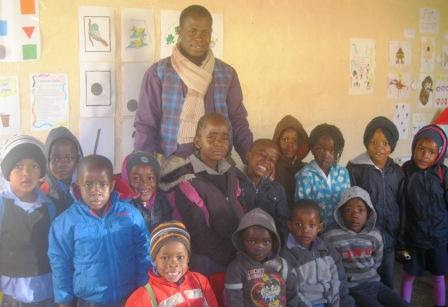This week, I visited our school’s pre-primary classroom, where I took these adorable shots:


Our pre-primary teacher is a star! He is great with these little ones.
Then, the highlight of the weekend was attending a safari animal game auction. Below is the barn/staging area where all of the animals are contained and kept for viewing while the auction attendees view them through small peephole flaps (so as not to stress the animals).

Next are some of the animals: ostrich, giraffes, antelope ~




Finally, a view landscape shots: scrub and savannah ~


The game auction was quite interesting to observe. The purpose of the sale was primarily for farmers who want to have the game on hand for hunting parties, or for farms which want game on hand for game drives and safaris for tourists. The animals are stunningly beautiful up close, but I was reminded that “this is big business here” many times today. This year, farming and agriculture are taking a huge hit in Namibia because there is a severe drought here. However, tourism and farming are still 2 of the main industries in the country and are in some places still thriving.
From the anthropological perspective, it was interesting to observe who was attending this game auction. The prices of the game were extraordinary – over $40,000 USD for some of the rare antelopes such as roan or sables. Giraffes went for around $1,200 USD. So the people in attendance were mainly wealthy, white farmers. Sharply dressed, powerful people purchasing huge safari animals. It is a huge operation; the barn complex pictured above costs millions of dollars because it has to be safe and secure enough to house very powerful animals until they are ready to be taken away to their new home.
I appreciate being able to compare and contrast these different sides of Namibia. This weekend, two different worlds: today the game auction, tomorrow the township…












